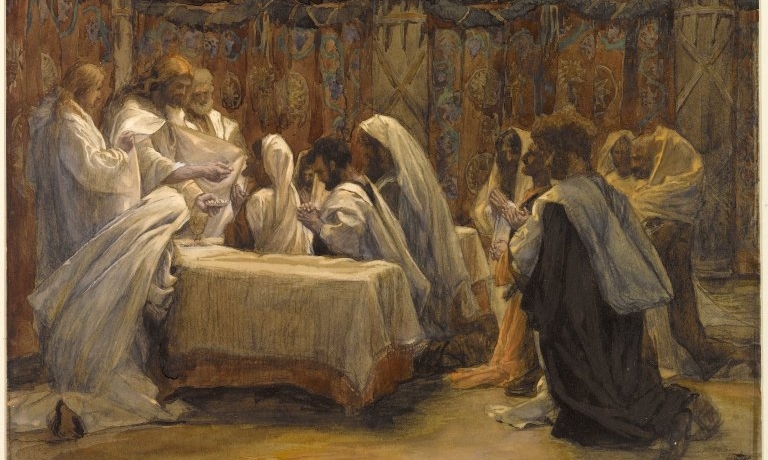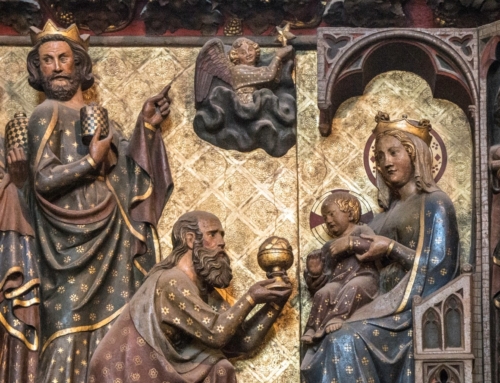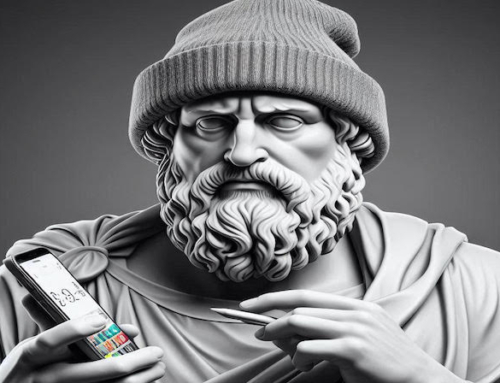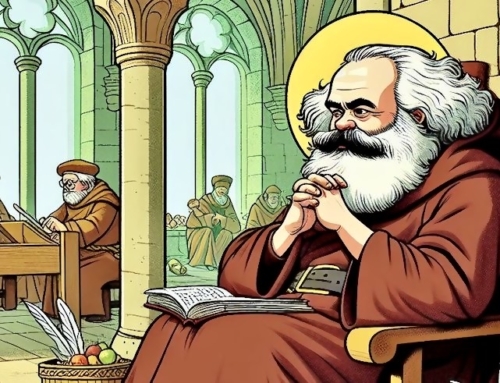Panis Vivus: An Essay on the Eucharist
A “panis vivus” essay is meant to convey, in no uncertain terms, that the Eucharist is really and truly the body, blood, soul, and divinity of Our Lord Jesus Christ. It is our collective response to the 2019 Pew Research Center survey, which reported that only a third of United States Catholics believe in the Real Presence.
We are all sick, infected with mortality. Death is the one disease that does not discriminate, but comes for all eventually. As Saint Augustine laments, “Not everything grows old, but everything dies” (Confessions, IV.x.15).
But it was not always so, “because God did not make death” (Wis 1:13) but “created man for incorruption” (Wis 2:23). When God made man, he immunized him to death. Dwelling in friendship with God, the souls of our first parents enjoyed a spiritual life that flowed like an IV into their bodies, vaccinating them against physical death.
When our first parents rebelled against God, however, they tore the lifeline of saving medicine from their veins. Instead, the spiritual death of the soul began to seep into the body. All humanity became sick with the double death of soul and body.
“Those who are well have no need of a physician, but those who are sick,” Jesus said (Lk 5:31). And humanity was sick—sick unto death. Jesus became man to be the physician we need. As St. Ignatius of Antioch confessed, “There is only one physician, who is both flesh and spirit, born and unborn, God in man, true life in death, both from Mary and from God, first subject to suffering and then beyond it, Jesus Christ our Lord” (Letter to the Ephesians 7.2).
Going to the cross, like a medic into the midst of a battle, “He who for us is life itself descended here and endured our death and slew it by the abundance of his life” (Confessions, IV.xii.19). In his humanity, our Divine Physician overcame the death of the human soul and body.
Christ applies the healing power of his passion, death, and resurrection to our illness through the sacraments. Baptism pours new, divine life into our souls. But sin can still attack our newfound health. For, “sin is the spiritual death of the soul” (ST III q. 79, a. 6). Confession, then, resuscitates the soul to life.
In the Eucharist, however, we discover a unique medicine. While the other sacraments convey the physician’s healing power, the Eucharist contains the physician himself. The Eucharist is “the flesh of our savior Jesus Christ, which suffered for our sins and which the Father by his goodness raised up” (Letter to the Smyrnaeans 6.2). In the Eucharist, Christ is both physician and medicine.
Christ gives himself as the medicine to strengthen and preserve our souls from death and prepare our bodies to share his physical resurrection. This is why St. Ignatius calls it “the medicine of immortality, the antidote we take in order not to die but to live forever in Jesus Christ” (Letter to the Ephesians 20.2).
Christ himself promises that “if any one eats of this bread, he will live for ever” (Jn 6:51). As St. Thomas Aquinas comments, Christ presents the Eucharist as the cure to both spiritual and physical death: “But those who eat the Eucharist spiritually, both live spiritually now without sin, and will live physically forever” (Commentary on the Gospel of John, ch. 6, lect. 6, n. 954).
The Eucharist is not like some cheap over-the-counter drug. Rather, it is the most potent, most effective antidote, giving eternal life to the soul and the body. Normal medicine, like food, enters the body and is used up by the body, transformed into the body. This medicine of immortality, on the other hand, transforms the one who receives it. Augustine heard, as it were, the voice of God directing him to the Euchairst, assuring him, “you will not change me into you like the good your flesh eats, but you will be changed into me” (Confession, VII.x.16).
Here, then, we have the antidote to our illness, the medicine for our mortality. In the Eucharist, we receive a share in the one who does not grow old or die but is ever ancient, ever new (Confessions, X.xxvii.38).
✠
Image: James Tissot, La communion des apôtres







